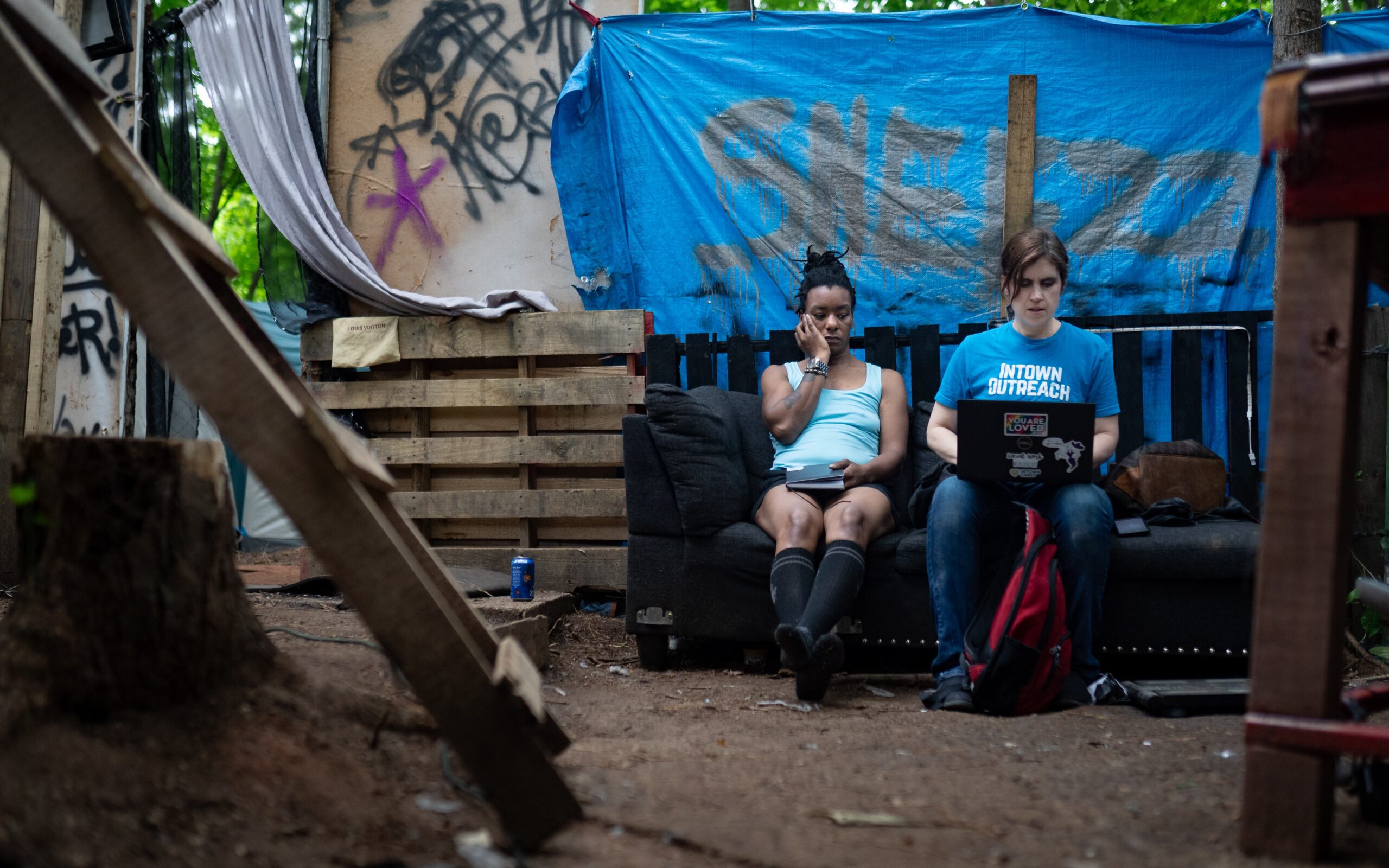Additionally, the president threatened to deploy federal troops to other cities. Advocates are already worried about a scheme dubbed Downtown Rising that aims to remove 400 homeless individuals from downtown.
Can you picture the pain that people would experience during an eviction if federal forces were to invade and attack them as though they were the state’s enemy? said Nolan English, a homeless advocate from Atlanta.
An executive order issued in March instructing Secretary of the Interior Doug Burgum to utilize the National Park Service to crack down on homeless persons camping on government land in Washington, D.C., preceded Trump’s federal takeover.
Since then, the U.S. Park Police have cleared over 70 camps, Burgum stated on Monday.
Additionally, Trump declared homelessness a public safety concern in an executive order he signed in July. Enforcement, homelessness sweeps, and, if required, coercing individuals into involuntary civil commitment for mental health treatment are given first priority.
The directive instructed the U.S. Department of Housing and Urban Development to discontinue its funding for models that prioritize housing.
According to Jesse Rabinowitz, spokesman for the National Homelessness Law Center, the executive order does little to address the underlying issues that lead to homelessness, such as the shortage of permanent homes or the housing affordability crisis.
According to Rabinowitz, it’s a sledgehammer to the rights of those who live outdoors.
Thanks to AP
Thanks to AP
An interview request was turned down by the office of Atlanta Mayor Andre Dickens. Michael Smith, the mayor’s press secretary, stated that the mayor’s purpose and programs for our homeless individuals will continue despite the president’s executive order on homelessness, but he did not address issues regarding Trump’s federal takeover on Monday.
When it comes to addressing homelessness in the city, Dickens has prioritized housing, but he has also said that those who unlawfully camp on the streets and refuse to leave could be sent to a pre-arrest detention facility where they could receive treatment or other services.
The police department in Atlanta chose not to comment. Garrison Douglas, the press secretary for Governor Brian Kemp, stated that his staff refrains from engaging in unfounded speculation.
However, Robb Pitts, the chair of the Fulton County Board of Commissioners, thinks the county and city might be on Trump’s target list, pointing out that earlier this year the administration had denied him an invitation to meet with local leaders at the White House.
Atlanta has also been singled out by the Trump administration as a sanctuary city with rules that are welcoming to immigrants.
Pitts stated that incarcerating more people does not address the issue of homelessness in the area.
Michael Collins, senior director for government affairs at the racial justice group Color of Change, stated that there was already uncertainty regarding the fate of those who refuse housing or other services and whether they would wind up in Fulton County Jail, where a Justice Department investigation found hazardous and brutal conditions, even before Trump announced the crackdown.
Collins claimed that the Trump executive order on homelessness essentially provides them with a pretext to carry out the enforcement they have always desired.
Thanks to AP
Thanks to AP
When asked how the jail would treat inmates who were transported there as a result of encampment sweeps, Natalie Ammons, a spokesperson for the Fulton County Sheriff’s Office, would not answer. She claimed that unlike in Washington, DC, her office was not concerned about federal action.
We tackle homelessness in a variety of ways in collaboration with our partners in Atlanta and other local governments throughout the area. We’ll keep working on these initiatives, Ammons replied in an email.
The Downtown Rising initiative, which is a component of the Atlanta Rising city plan, is being led by the charity Partners for HOME, which also oversees the city’s homeless strategy. Last week, CEO Cathryn Vassell told The Atlanta Journal-Constitution that her organization is dedicated to the housing-first concept, pointing out that those who are not yet prepared to move into housing are provided with tailored support and treatment.
According to her, arrests and penalties just serve to complicate our work and cause more trauma for homeless people.
Vassell is in favor of more funding for mental health care and housing options for those suffering from serious mental illness.
In actuality, we are aware that institutionalization is ineffective, Vassell stated.
However, the timing of the Trump administration’s confrontation with the city over its homeless policy appears to be favorable as the World Cup approaches.
When the Old Wheat Street campsite was cleared in July, English, a homeless advocate living in Atlanta, collaborated with the city and Partners for HOME. He is still not persuaded that the city was taking the necessary steps to ensure that people were not only given homes but also remained there and did not return to the streets.
The World Cup should not be used as a broom. “Use that as a deadline to do the right thing,” he continued, referring to permanent leases, IDs, mental health care, recovery, and economic support—all of which are necessary to truly reduce and end homelessness.






